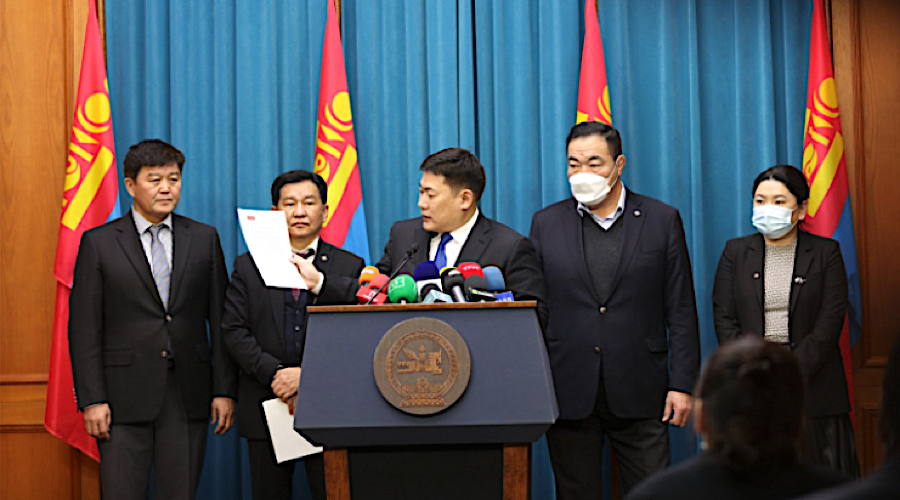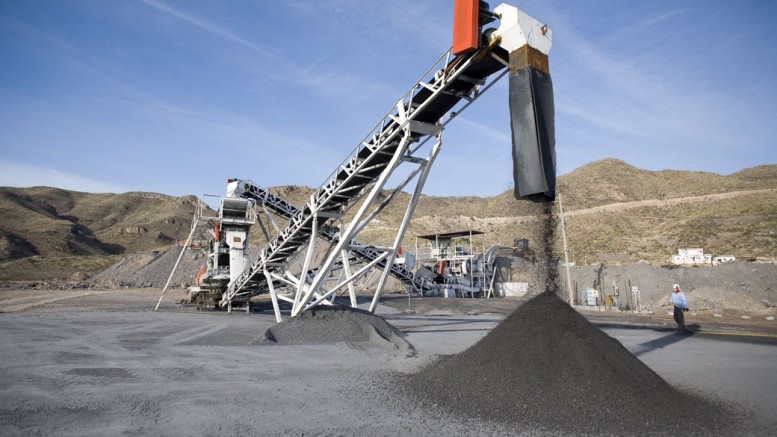The concession, part of wider offer to end tensions with Mongolia over the underground expansion of Oyu Tolgoi, would speed up the timeline for when the country can start receiving dividends, the letter said.
Rio’s five-point proposal includes terminating the project’s controversial financing agreement and covering the additional investment until the start of production, which is now expected in the first half of 2023.
It also means that Erdenes Oyu Tolgoi, the state-owned company that holds the government’s equity in the project, won’t incur additional debt after operations begin at the underground section.

“The above decisions were difficult to make and represent our final offer,” Stausholm said in the letter. “The investors are transferring significant value to Mongolia, which we believe will be the basis for a long-term, trusting partnership.”
Mongolia owns 34% of the mine, with the rest held by Canada’s Turquoise Hill Resources (TSX, NYSE: TRQ), in which Rio has a 50.8% stake.
The ongoing expansion of the project in the Gobi desert has been plagued by delays and costs overruns, which have triggered the Mongolian government’s ire to the point of threatening to revoke the 2009 investment agreement, which underpins the mine development.
Relations between Rio Tinto and the Central Asian nation hit a fresh low in August, when an independent review rejected the mining giant’s explanation for the project’s delays and climbing costs.
Rio’s chief executive Jakob Stausholm travelled to Mongolia in November to “hear and understand” Mongolia’s government concerns, he said in a LinkedIn post.
The company’s concessions to Mongolia are believed to be a direct result of those talks. They need to be ratified by the country’s parliament, but the offer already has the backing of Oyun-Erdene, who was recently appointed chair of the ruling Mongolian People’s party, controlling 62 of the 76 seats in parliament.
From 2020 to 2022 to 2023
A definitive estimate for the development of the new mine level, announced in December 2020, pegged the cost of Oyu Tolgoi’s underground section at $6.75 billion, about $1.4 billion higher than its original estimate in 2015.
First production, initially expected in late 2020, was rescheduled for October 2022, and Rio blamed unfavorable geological conditions as the main cause for the cost and timeline review. The independent report published in August suggested it was rather caused by the miner’s mismanagement.
Financial regulators in the UK and US kicked off their own probes into Rio’s disclosures about the delays and swelling costs, which hit a new high two months later.
Shares in Canada’s Turquoise Hill Resources (TSX, NYSE: TRQ), in which Rio has a 50.8% stake, cratered on October 14 after announcing that the expansion would require an additional $1.2 billion. It also said that due to covid-19 related issues first commercial production would be no earlier than January 2023, around three months’ later than the previous target.
Oyu Tolgoi is Rio Tinto’s main copper growth project. Once completed, the mine’s underground section will lift production from 125,000–150,000 tonnes in 2019 to 560,000 tonnes a year of the metal used in construction, electric vehicles and renewable energy. The figure, corresponding to peak output, will be achieve by 2025 at the earliest, Rio has said.
By 2030, the operation would be the world’s fourth largest copper mine, according to Rio Tinto. The mine is the country’s biggest source of foreign direct investment, having created thousands of jobs and generating almost $3 billion of taxes and fee revenue over the past decade.




